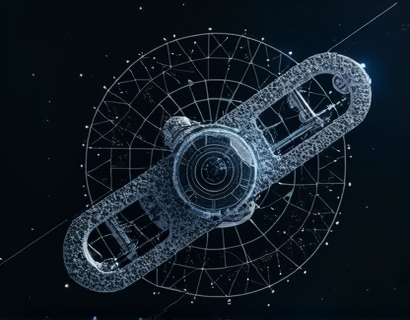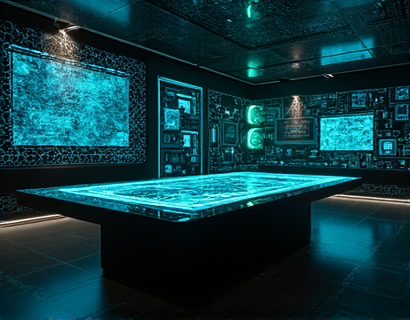Unlocking the Past: A Journey Through Ancient Wisdom and Cultural Heritage
Embarking on a journey through the ages to explore the profound wisdom and cultural treasures of ancient civilizations is an endeavor that enriches the soul and broadens the mind. This comprehensive exploration bridges the gap between historical insights and modern understanding, offering a wealth of knowledge for history enthusiasts and cultural heritage seekers. Ancient civilizations, with their intricate societies, monumental achievements, and profound philosophies, provide a rich tapestry of human experience that continues to inspire and inform us today.
The Significance of Ancient Civilizations
Ancient civilizations, such as the Egyptians, Greeks, Romans, Mesopotamians, and Indus Valley people, laid the foundations of modern society in numerous ways. Their contributions span across various domains including architecture, governance, science, art, and philosophy. Understanding these civilizations helps us appreciate the roots of contemporary culture and the evolution of human thought. Each civilization had its unique approach to life, governance, and the cosmos, offering diverse perspectives that can enrich our current worldview.
Egyptian Wisdom and Achievements
The ancient Egyptians are perhaps one of the most studied and admired civilizations. Their monumental architecture, such as the Pyramids and the Temple of Karnak, stands as a testament to their engineering prowess and religious devotion. The Egyptians made significant advancements in mathematics and medicine, with their calendar system and medical texts influencing later cultures. The Rosetta Stone, a key to deciphering hieroglyphs, has unlocked a wealth of knowledge about their language, beliefs, and daily life. The Egyptian Book of the Dead provides insights into their spiritual beliefs and the afterlife, reflecting a deep philosophical understanding of existence.
Greek Contributions to Western Thought
The ancient Greeks are renowned for their contributions to philosophy, science, and the arts. Philosophers like Socrates, Plato, and Aristotle explored fundamental questions about existence, ethics, and knowledge, shaping Western philosophical thought. The Greeks also made groundbreaking advancements in mathematics, with figures like Euclid and Archimedes laying the foundations for geometry and physics. In the realm of art and literature, Greek works continue to influence modern culture, from the sculptures of Phidias to the plays of Sophocles and Aristophanes.
Roman Innovations and Governance
The Romans built upon and expanded the achievements of the Greeks, creating a vast empire that stretched across Europe, North Africa, and parts of Asia. Roman engineering and architecture, exemplified by the Colosseum and aqueducts, demonstrated their practical and innovative spirit. Roman law and governance structures have had a lasting impact on modern legal systems and political institutions. The Roman Empire's ability to integrate diverse cultures and maintain stability offers valuable lessons in governance and administration.
Mesopotamian Foundations of Civilization
Located in the fertile crescent, Mesopotamia is often referred to as the cradle of civilization. The Sumerians, Babylonians, and Assyrians developed early forms of writing, law, and urban planning. The invention of the wheel and the development of cuneiform script revolutionized communication and record-keeping. The Code of Hammurabi, one of the earliest known sets of laws, provides insight into their legal and social structures. Mesopotamian astronomy and mathematics also influenced later civilizations, including the Greeks.
Indus Valley Civilization: A Gem of Urban Planning
The Indus Valley Civilization, flourishing around 2600-1900 BCE, is notable for its advanced urban planning and sophisticated water management systems. Cities like Harappa and Mohenjo-Daro featured well-planned streets, drainage systems, and public baths, indicating a high level of social organization and public health awareness. The Indus script, though not yet fully deciphered, suggests a complex administrative and religious system. The civilization's trade networks extended to Mesopotamia and beyond, highlighting their economic and cultural influence.
Preserving and Understanding Ancient Knowledge
Preserving and understanding ancient knowledge is crucial for maintaining a comprehensive view of human history and cultural development. Archaeological excavations, scholarly research, and technological advancements have greatly enhanced our ability to study and interpret ancient artifacts and texts. Museums and digital platforms play a vital role in making this knowledge accessible to a global audience, fostering a deeper appreciation and understanding of our shared heritage.
Archaeological Discoveries
Archaeological discoveries continue to shed light on ancient civilizations, revealing new insights and challenging existing narratives. Excavations at sites like Pompeii, Angkor Wat, and the Maya cities have provided invaluable data on daily life, social structures, and cultural practices. These findings not only enrich our understanding of the past but also highlight the resilience and ingenuity of ancient peoples.
Interdisciplinary Approaches
Interdisciplinary approaches, combining archaeology, history, anthropology, and other fields, offer a more holistic understanding of ancient cultures. For instance, the study of ancient DNA has provided insights into population movements and genetic relationships between different groups. Similarly, the analysis of artifacts through scientific methods like radiocarbon dating and material analysis helps date and authenticate items, enhancing the accuracy of historical reconstructions.
Timeless Teachings and Modern Relevance
The wisdom of ancient civilizations is not merely a relic of the past but a source of timeless teachings that remain relevant today. Many ancient philosophies and spiritual traditions emphasize values such as mindfulness, community, and harmony with nature, which are increasingly recognized in contemporary discussions on well-being and sustainability. By revisiting these ancient teachings, we can gain new perspectives on modern challenges and find inspiration for positive change.
Philosophical Insights
Ancient philosophers like Confucius, Lao Tzu, and the Stoics offered profound insights into ethics, governance, and personal development. Confucianism's emphasis on social harmony and moral virtue continues to influence East Asian cultures, while Stoicism's focus on resilience and self-control resonates in modern self-help literature. These philosophies encourage a balanced and reflective approach to life, promoting inner peace and social cohesion.
Cultural Heritage and Identity
Cultural heritage plays a crucial role in shaping individual and collective identities. Preserving and celebrating the heritage of ancient civilizations helps maintain a sense of continuity and belonging. It fosters respect for diversity and promotes cross-cultural understanding, essential in our increasingly interconnected world. Educational programs and cultural exchanges can help preserve these traditions and ensure they are passed down to future generations.
Conclusion
Exploring the wisdom and cultural heritage of ancient civilizations is a journey that enriches our understanding of human history and our place in the world. By studying the achievements and teachings of these civilizations, we gain valuable insights that can inform and inspire our modern lives. As we continue to uncover and appreciate the legacies of the past, we honor the ingenuity and creativity of those who came before us, ensuring that their contributions remain a vital part of our shared human story.










































